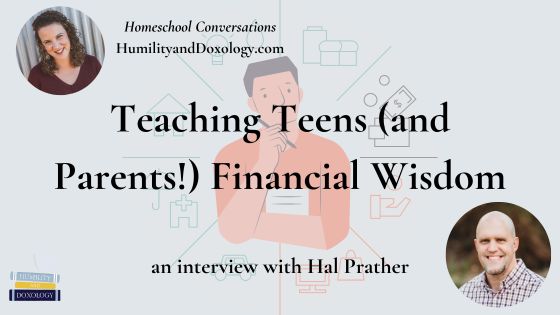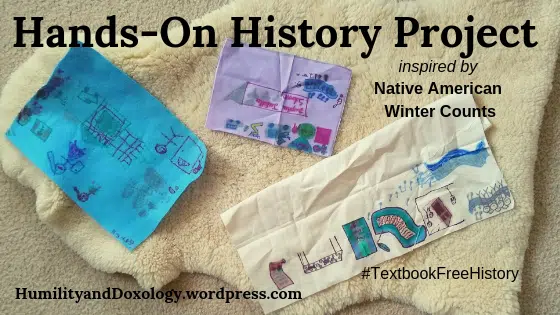In this episode of the Homeschool Conversations podcast, I had the pleasure of talking with Hal Prather, a financial coach, homeschool dad, and founder of Your Profit Pro. We explored how parents and teens alike can grow in financial literacy, stewardship, and confidence. Are you trying to figure out your own finances? Or maybe you’re seeking guidance in preparing your teens for their financial future. This conversation is for you!
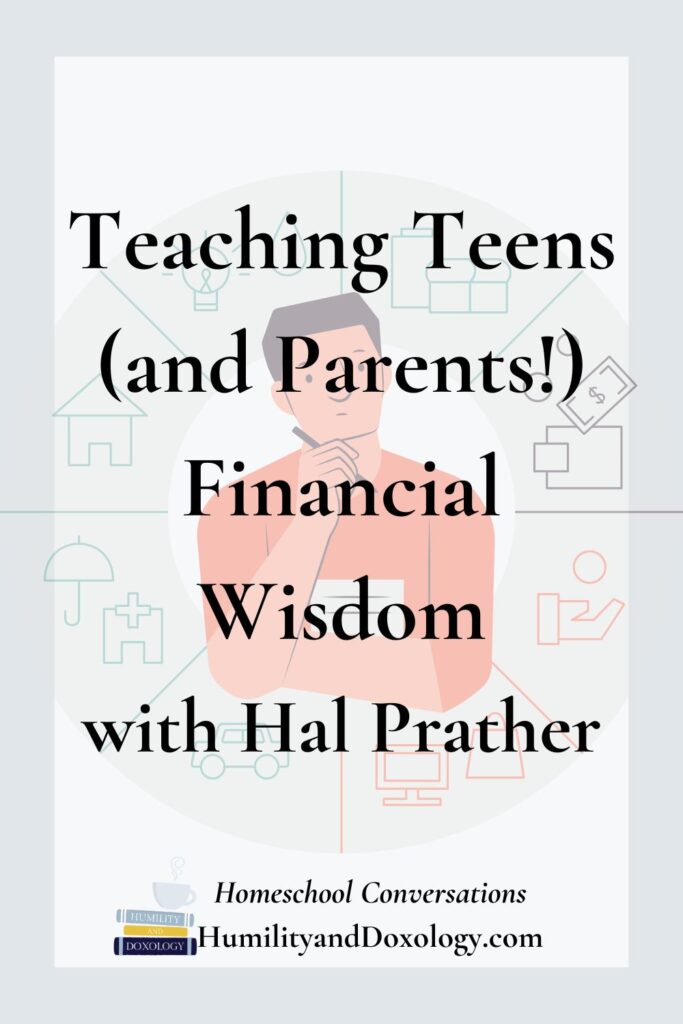
{This post contains paid links. Please see disclaimer.}
- Meet Hal Prather: Financial Counselor Turned Homeschool Dad
- From Numbers to Meaning: Hal’s Evolving Relationship with Money
- The Spark That Lit the Fire: Helping Teens Avoid Financial Regret
- Budgeting Basics Teens Need to Know
- Finances Start with the Present, Not the Future
- If He Could Teach One Principle…
- Why Financial Margin Matters
- Recommended Reading: For You and Your Teens
- Where to Find Hal’s Courses
- Key Takeaways
- Listen to the full podcast episode on Homeschool Conversations with Humility and Doxology
- You may also enjoy:
- Check out all the other interviews in my Homeschool Conversations series!

Meet Hal Prather: Financial Counselor Turned Homeschool Dad
Hal Prather’s career began in financial planning and counseling, helping thousands of individuals understand the psychology of money. After years in the software world, Hal returned to his finance roots with a new mission: helping families and teens gain practical financial skills. Alongside his wife Mary (founder of Homegrown Learners), Hal homeschooled their two children and now focuses on teaching financial literacy through Your Profit Pro.
From Numbers to Meaning: Hal’s Evolving Relationship with Money
Hal shared candidly that he wasn’t always a confident money expert. Over time, he’s learned to see money not just as a resource, but as “a form of energy” that can be used intentionally for good. Whether you’re naturally a saver or a spender, Hal encourages people to let go of fear and control, and instead steward money with purpose and peace.

The Spark That Lit the Fire: Helping Teens Avoid Financial Regret
Hal’s passion for teaching teens about money grew from hearing the same regret over and over during his years in financial counseling: “I wish I learned this in high school.” That refrain inspired Hal to start teaching personal finance courses to homeschool teens—and to create content that equips them before they face financial hardships.
Budgeting Basics Teens Need to Know
When teaching teens, Hal focuses on a few foundational ideas:
- Understanding their own money personalities.
- Exploring career paths and vocational alignment.
- Learning how to earn, grow, protect, and steward money.
- Most importantly: understanding that time is their greatest asset.
Hal reminds us that the earlier teens start investing and budgeting, the more equipped they’ll be for long-term success without neglecting their current needs.

Finances Start with the Present, Not the Future
For parents feeling overwhelmed by money, Hal offers this first step: stop planning with future money. Instead, take stock of what you have right now—checking, savings, and other current resources—and make decisions based on that reality. Focusing on what’s tangible helps avoid the trap of imaginary budgets or assumptions about what might come next.
If He Could Teach One Principle…
Hal’s one big takeaway? “Money is meant to be spent…but it’s meant to be spent intentionally.” Whether you lean toward saving or spending, the key is to make sure your financial plan reflects your values and real life. That’s what turns a simple budget into a tool for joy, peace, and purpose.
Why Financial Margin Matters
Hal and I discussed how financial margin isn’t just about having extra cash. It’s about operating from a position of strength. Planning for the unexpected (like that HVAC replacement!) gives families the ability to make better decisions, give generously, and live with greater peace. Margin builds resilience.

Recommended Reading: For You and Your Teens
Hal recommends the book It’s Not About the Money by Brent Kessel, which explores the psychological and emotional side of financial decisions. For a more heartwarming read, he recently enjoyed Theo of Golden by Alan Levi, a novel that celebrates generosity and community impact.
Where to Find Hal’s Courses
If you’re interested in learning more or signing your teen up for Hal’s courses, head to YourProfitPro.com. You can also reach Hal directly via email at hal@yourprofitpro.com. (He’s not on social media, but he’s still very responsive!)
Key Takeaways
- Money is meant to be spent intentionally. Whether you’re a natural saver or spender, the goal is to use money with purpose—not fear or impulse.
- Time is a teen’s greatest financial asset. Starting early with budgeting, saving, and investing gives young people a huge advantage long-term.
- Every person has a money personality. Understanding how you relate to money (often shaped early in life) can guide wiser financial decisions.
- Focus on present resources, not future assumptions. Effective money management starts by working with what you have right now—not imaginary income or hoped-for raises.
- Financial literacy is critical for teens. Hal repeatedly heard adults say, “I wish I learned this in high school,” inspiring him to teach teens so they avoid the same mistakes.
- Career decisions are part of financial stewardship. Helping teens align their aptitudes and interests with realistic career paths can lead to wiser college and job choices.
- Financial margin leads to flexibility and peace. Building margin in your budget allows for unexpected expenses, generosity, and reduced stress.
- Intentionality leads to margin. Planning ahead (e.g., saving 1% annually for home maintenance) naturally creates space for emergencies and opportunities.
- Your spending plan should reflect your life. A good budget isn’t just numbers—it’s a reflection of your priorities, values, and real needs.
- Generosity grows from stewardship. When families operate from a position of financial strength, they’re better equipped to give and bless others.
Listen to the full podcast episode on Homeschool Conversations with Humility and Doxology
Hal Prather has spent his entire career at the crossroads of personal finance, business operations, and technology. He began in financial planning and counseling, helping thousands of individuals understand the psychology of money and take control of their finances. Later, he transitioned into software development and software consulting. Hal and his wife Mary have raised and homeschooled two homeschool graduates. After retirement from software consulting, Hal started Your Profit Pro which has a mission to provide Financial Education to individuals, families, and small businesses.
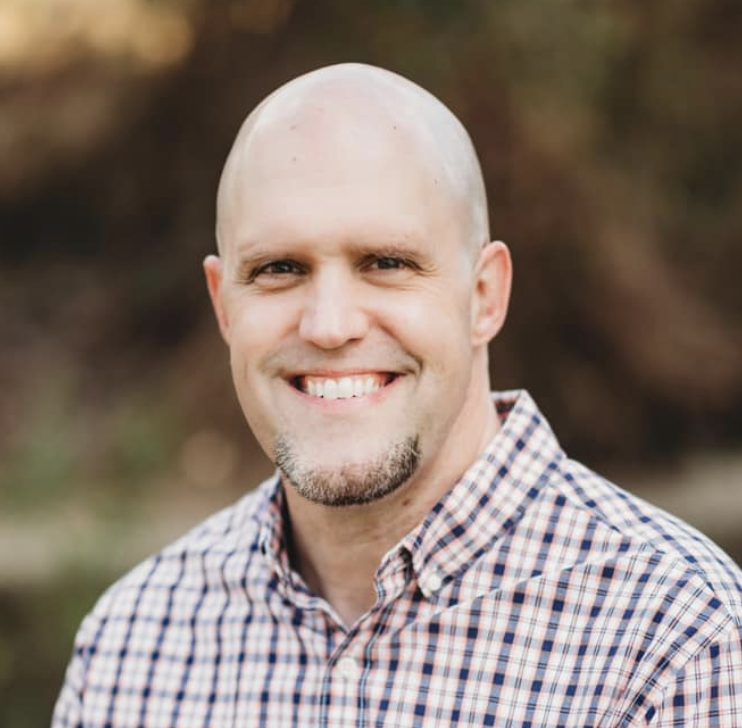
You may also enjoy:
- Counting Pennies, Reaping Riches
- Cooking and Other Life Skills: Raising Competent, Confident Kids
- Healthy Eating on a Budget (an interview with Steph Jenkins)
- Budgeting for Homeschool Families: a video interview with Matt Miner (MBA, CFP®, and homeschool dad)
- MoneyTime: Financial Literacy for Kids Made Easy (with Neil Edmond)
- Homeschool Music Appreciation and Homegrown Learning (a video interview with Mary Prather)
Check out all the other interviews in my Homeschool Conversations series!
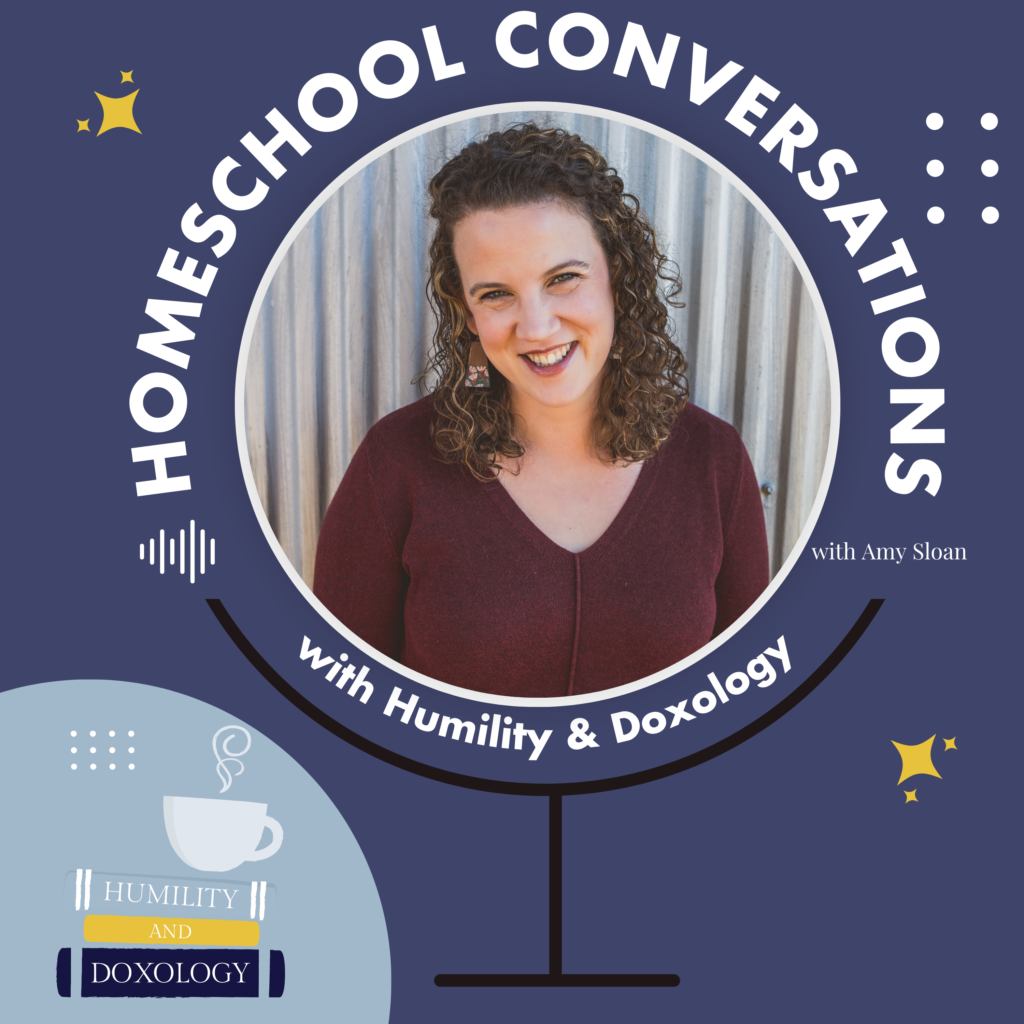
Amy Sloan: Hello, friends. Today, I am joined by Hal Prather. Hal has spent his entire career at the crossroads of personal finance, business operations, and technology. He began in financial planning and counseling, helping thousands of individuals understand the psychology of money and take control of their finances. Later, he transitioned into software development and software consulting. Hal and his wife, Mary, who has been a repeat guest a few times here on the podcast, they have raised and homeschooled two homeschool graduates. After retirement from software consulting, Hal started Your Profit Pro, which has a mission to provide financial education to individuals, families, and small businesses, and today, to provide a bit of education to us. So, Hal, I’m so glad you’re here. At the beginning, just tell us a little bit about yourself, your family, your history, and experience with financial planning.
Hal Prather: Oh, Amy, it’s a joy to be on your podcast. Thanks for having me. Yeah, I mean, that was a great intro, so I don’t know what I can add to that, but yeah, my wife and I live near Atlanta. We’ve been married 28 years, graduated two homeschool graduates. One is just about to enter her second year as a special education teacher, and our son, Grant, is studying, he’s a junior now, studying sports communications. So, it’s a little bit about… My children, and of course, my wife, Mary, who you know well, and she started Homegrown Learners, many, I think, about 2014. So, it’s been about 11 years, and we watched that sort of that blog and her school music curriculum kind of grow, particularly through the pandemic. And yeah, so I just started, I kind of left my software development world after being involved in that for over 15, 16 years, left that world to help her in the business, and then kind of rediscovered those roots that you mentioned of financial planning and financial counseling, and thought, you know, I need to come back to that, and really homeschool families were telling me that that was, they would love for us to, you know, offer courses on that, since that was the background. And I did several cohorts through our kids’ groups, helping those, kind of their friends and their groups with, like, Dave Ramsey’s Personal Foundations in Finance for Homeschoolers. And then thought, you know, what have I taught my kids? And how can I sort of parlay that into a very personalized and engaging curriculum that we could kind of get more hands-on with? So, that was the development of the teens course, but that came from coaching, you know, families as well, coaching, you know, moms and dads who were in the homeschool arena. That could be a challenging area for a lot of people financially. So, helping there, and then that kind of parlayed into the teens course.
Amy Sloan: Yeah, it’s such an important topic, and one that I know that many parents feel like they didn’t receive that education themselves, and they’re still either trying to figure it out, or maybe recovering from poor financial decisions of their own. And so, it can feel hard and overwhelming for them to pass that on to their kids, for sure.
Hal Prather: Yeah, yeah.
Amy Sloan: Well, how has your own relationship with money evolved through the years of helping others with theirs, you know? Have you always just been a natural financial, astute guy, or was that a learning curve?
Hal Prather: Well, no, I wouldn’t even use the word financially astute, right? Because we all have different ways of approaching money. So, I look at it like, wow, how have my ways changed with money? I think I’ve become more comfortable with spending. I believe we all sort of fall in a curriculum of, or a curriculum, a continuum of sort of a saver and a spender. We all fall somewhere along that. And even at different stages of our lives, we all fall in a continuum of, sort of, a saver and a spender. We all fall We may move around in that for many, many reasons. But I’ve become more comfortable with spending, realizing that that’s what money is, actually. Money is a, I hate to say money is a tool, money is a resource, because I think it’s more than that, too. But money is like an energy, and I’ve learned to, like, capture that energy, and how can I put that energy back into things that will benefit my family, society, etc. So, instead of holding on to it and seeing it as security, right? I think I’ve seen enough situations to know it’s okay to let go, and I have other reasons for that. But that’s sort of how my own approach with money is. I’ve gotten easier on the purse strings, I guess, so to speak.
Amy Sloan: Well, because it is interesting, because a lot of that then comes down to really, like you mentioned, like, you don’t have to view it as security, or this, like, fear, where we put our trust, right? And even though, on the one hand, being a person who never spent money, I think I’ve seen enough situations to know it’s okay to let go, and I have other reasons to know it’s okay to let go, and I have other reasons to know it’s okay to let go, and I have other reasons to know it’s okay to let go, and I have other reasons to know it’s okay to let go, and holds on to every penny, you know, might seem on its surface to be better than someone who just flagrantly spends their money, right? And in some ways, of course, I guess it is, but it can actually both be looking for security and happiness in the wrong thing, either in the spending and accumulation, or in the hoarding and putting that trust in the bank account.
Hal Prather: You said it perfectly, and that’s why when you mentioned financially astute earlier, that’s exactly what I was thinking. That’s exactly why. It’s not that if you save money, you’re more financially astute. You know, you can even say that maybe you’re not, because you’re not letting that money flow. You’re not being a good steward of that money, per se. You’re holding on to it for the wrong reasons, and that security that you mentioned, it’s exactly it. It’s learning how to get outside of your own fears and insecurities and let the money flow.
Amy Sloan: Yeah. Well, what’s the story that first lit the fire for you when it comes to helping teens in particular? With money and life direction decisions?
Hal Prather: Oh, boy. I would say that story is kind of long in the making. Lit the fire. You know, there are probably a thousand matches thrown first that sort of got the kindling going. When I was in financial counseling, and we were dealing with a lot of individuals and families who were facing dire circumstances. Maybe it was a bankruptcy or foreclosure, you know, losing a home. And I heard so often, like, literally eight out of 10 times, I’m not kidding, it was 80% of the time, I would hear, I wish I learned this in high school. I wish I learned this in high school. Well, if you fast forward literally about 20 years, and when I began working with homeschool families and coaching them on financial, you know, basically financial coaching, it became apparent that I would hear it again, like, hey, this is great. You’ve taught me so much. You’ve helped me through some of the things I never thought about with money. Do you teach this? And my reaction was, no, but I will. And I thought to the times and how much fun it was to, like, teach Ramsey’s classes to my children’s groups, my children’s own classes. And I thought, I can develop something I know that will be fun and engaging for them. And then that’s where understanding personal finance for teens started up. That’s how it began.
Amy Sloan: Yeah. So it’s almost like seeing on the one end, people who didn’t learn it as teens and the negative impact that has, you know, it’s good to help, help those people too. But if we can rewind and help the next generation of teens, so they don’t get to that situation, right? In the first place.
Hal Prather: Absolutely. And you’re exactly right. I mean, they just, there’s such a, and you know, and believe it or not, in the, like from a, from a public school perspective, I think it’s just over half of the states in the country now even have a homeschool or have a finance, personal finance requirement. And that’s gone from, I think five years ago at the start of the pandemic, it was maybe like eight states. And now it’s up to like 27 or 28 states that are starting to do. So that’s a good thing. That’s a positive thing that we’re, that we’re, it’s a positive trend that we’re seeing, but it’s still not good enough.
Amy Sloan: Yeah, definitely. Well, it can feel a little overwhelming, I think too, because there’s so many possible topics that we think, oh, I need to make sure I, I don’t, my kids know all these things. So if you can kind of prioritize, what are the most important ideas about budgeting, financial responsibility, stewardship that we should be passing on to our teens?
Hal Prather: Oh, that’s, that’s really good. Well, the way I break it out in, in my classes, you know, I teach them how, how they relate to money. So we all have into, and you know, those, those are formed early on. Those, how you relate to money is formed probably by the time you’re seven or eight years old, many people will say. But I teach them, we kind of walk through exercises of how they relate. And then, you know, I teach them how to relate to money. What are ways maybe that they haven’t thought of, because parents do a really good job of, you know, they, they know their children the best and sort of guiding them and stewarding them into career options. But we spend a lot of time talking about career options. I think that’s important. And actually, when I pull children after, after we get done with a class, a whole course, what their favorite week was, it’s always the vocation week. We do, it really unpacked that in depth and it’s a lot of fun. But obviously then stewarding their money. So how they, how they budget and plan for them. How they grow their money, how they protect their money through insurance and avoiding debt, and then how they build financial freedom. But what’s, what’s the most important of those? I would say the most important thing for that topic they could ever learn would probably be time is their biggest asset. You know, we have at a young age, you have all this time to make money. And then you, as you get older, hopefully if you’ve done the right things, you have a lot of money with less time. So it’s, yeah, get started early with your investing, but don’t forget there’s current you and future you. So it’s kind of getting back to that balance of, and how you do that throughout your life. You know, obviously we’re not teaching teens in this class, like here’s life in a box in six weeks, but we’re going to teach hopefully the lesson that come, the, one of the key lessons that come away with is I need to get involved in investing early because time is on my side, but I can’t forget about current me as well.
Amy Sloan: Yeah. I love that you include the concept of vocation and career training and decision-making as part of financial responsibility and stewardship. I think that’s so important. You know, it’s not just about, do you know how to make a spreadsheet and track your spending and, you know, understand, uh, uh, compound interest and stuff like this, right? It’s also thinking as you’re choosing what career you’re going to, to pursue, um, as teens, of course, thinking about college and return on investment. How much money are you spending versus the career you’re coming out with and how much will you be making? Right. Those are really big, important conversations. I know my husband and I have had with our teens and we have two homeschool graduates as well. And, um, that’s really impacted the things they’ve decided to study the schools they’ve chosen a lot of those decisions. And I think sometimes people are like, well, but you know, you should just like follow this thing you’re passionate about. And we’ve kind of told our kids like, maybe that’s not the best way to choose a career. Yes. God gave you gifts and interests and those are good. But when it comes to choosing your college and your career, there’s a few other things you probably need to be thinking about.
Hal Prather: Definitely. And we can’t in today’s world with, with student loan, you know, $1.7 trillion in student loan debt. We have to, we have to measure twice and cut once. We can’t afford to, to keep, you know, taking on more, uh, more student loan debt. And, uh, I think that’s a big thing. So. Yeah. Being intentional, like you taught your children, you know, teaching them through. And it’s really the intersection of, it’s not so much following your passion, I believe, but it’s like following the intersection of your aptitude and your interest. Cause you all have, we all have things we’re good at. We all have things we’re interested in. Where can we draw that bullseye, you know, hit square in that Venn diagram the best.
Amy Sloan: Well, okay. So that’s sort of, as we’re thinking about our teens and preparing them, setting them on a good trajectory, but what if a parent is listening and they’re like, okay, but first I should probably figure out my own finances here. What are the first steps that anyone who’s listening, they need to take to make sense of their family’s finances and feel in control of their money in an appropriate way, not in a, like grabbing onto it, but knowing what’s going on.
Hal Prather: Yeah. Feel like feeling in control, just feeling more in control with it. Um, I think it is to one is to stop planning, um, stop planning on the future. And by that, I mean, take your, take what is on the table right now, i.e. what is in your bank accounts right now, that would be that you have access to not necessarily retirement accounts, not necessarily anything for the future future, but things like savings and checking, what do you have available to you and on hand right now, because that forces you to think about now, instead of planning with future money. I think planning with future money can be very detrimental because the future hasn’t happened. And it’s one thing that debt, can do is like, oh, I’ll take care of that later on. You know, you take on debt, future income, future, how we’ll take care of that future. Amy will take care of that. Um, and it’s really don’t, you know, stop planning with the future, take inventory of, of what you have on hand right now and plan that out, see where that will get you to cover bills, to cover needs, to cover even cover wants and goals.
Amy Sloan: Yeah. That’s really good. Cause I think we do automatically when it comes to budgeting or finances, we automatically start thinking, oh, I’m supposed to be thinking about this. I’m supposed to be thinking about this. I’m supposed to be thinking about the future. And of course we ought to be thinking about the future, but if we’re just sort of living in a, an imaginary possibility time, it can be detrimental to the actual reality of today, um, living within the reality, the finiteness of what’s actually available to us right now.
Hal Prather: That’s the word reality. You said it, it’s the reality of right now because it just forces decisions. And then, and that it may change, you know, it could totally change. I mean, what Mike Tyson said, everybody has a plan until they’re punched in the face. I mean, uh, it’s so true with our, with our planning and our budgets, right. But it it’s important to look at right now. It’s that, you know, exactly how far you can, you can go with it. And if, if, if spending means investing in, in future you that’s actually spending, you know, making an investment and getting money out of your, your budget, your current spending is taking it away from current you and moving it into future you.
Amy Sloan: Yeah. That’s really helpful. Well, if you could teach only one principle, about money to every person you’ve ever worked with or ever will work with, what would it be and why?
Hal Prather: Oh, um, you know, Amy, I think it’s, um, I think it’s why money is meant to be spent. It’s meant to be spent, but it’s meant to be spent intentionally. So if you are a spender, don’t feel, if you are more of a spender and, you know, naturally don’t beat yourself up, realize that, Hey, it’s okay to spend money. But just make sure you’re doing it on the right things. That’s why I come back to kind of what I just said about putting on the table. Now you’ll make better decisions. If you only deal with the money you have right now, because it forces that scarcity, right? Um, likewise, if you’re a saver, if you’re more of a saver, like I mentioned earlier, that I kind of have learned, um, to be able to spend, it is that money’s meant to be spent, but again, with intentional and, and well thought out purpose, right? So that’s kind of what I would, I would teach people is money’s meant to be spent. Whether you consider yourself more of a saver or more of a spender, it’s meant to be spent. Just make sure you’re being very intentional. And that’s kind of one of the things that I think I am able to help people with is I want to see if you, if you get a spending plan in place, I want it to represent your life. I want it to be you. So you look through it. Yep. That’s what I, that’s what I need to give to. That’s what I need to live on. That’s what I need to save for the future.
Amy Sloan: Yeah. And that kind of relates to that reality thing we were talking about before, right? Cause being purposeful. And if you’re actually like writing out, choosing on purpose, like being intentional about what you’re doing and it may, you know, every family, of course, will be different in that. Um, but when you’re actually, you know, you’re, you can’t just be like, Oh, here’s like my imaginary budget. Like what I would like to be able to spend on the homeschool curriculum, you know? Oh, this would be great if I could, you know, get a new car or I think for moms, it’s probably more like, I’d love to go buy more, more books. Um, but you know, you can’t live in imaginary world and ideal world. You have to be intentional and purposeful with, with what’s actually in front of you. And then I think that relates to contentment too, right? Being thankful and content and joyful. Like sometimes I remind my kids like, Hey, when the air conditioning breaks and we get to replace, replace it or repair it, like that’s wealth being able to do that. You know, like really kind of training our minds to think about really how blessed we are in so many ways, even when things are hard. Yeah.
Hal Prather: Cause I mean, saving up, if you, if you kind of learn how to just take a little bit aside for a home maintenance kind of thing, right. And you know that I can cover that, that HVAC unit when it dies or I have to get it repaired or whatever, but yet everything else that I have in my life is, is covered. I’m not going to, not going to eat into anything else. You spend, like you said, you just, you’re just comfortable with it. It’s like we were blessed. We have, we’ve been able to steward it appropriately, right. And, and know that things are going to happen in the future.
Amy Sloan: And that kind of segues really to what I was going to ask. I mean, we’ve kind of dealt with it a little bit. I got ahead of myself thinking about the air conditioning that happened to us last summer, which is why it was on my mind. And it’s going a lot this summer as it’s very hot and humid in North Carolina right now. But why are some, what are some other reasons why you’re able to do that? What are some other reasons why it’s important to have financial margin in our family’s plan and not, you know, plan out to the edges?
Hal Prather: I think, um, because, and this is interesting because building financial margin is almost a by-product of that intentionality. When you’re intentional, when you think, okay, I live in a house, that house, the value on that house is X, let’s say it’s half a million dollars, 400,000, $500,000. I should probably save, this is a good rule of thumb, by the way, I should probably save 1% a year on the average, you know, 15, 20 year old house. I should probably save, you know, 4,000, $5,000 a year just to cover things that are going to happen, right? So when you’re that intentional, then in native or inherently, you sort of build that margin up. Okay. Now you’ve got years before, hopefully that HVAC unit needs a repair or whatever, but you continue to save for when it’s going to happen again, or a roof. And by doing that intentionality aspect of things, you, you natively build the margin. So why would it be important to build that margin would to me would be because then you operate from a position of strength. Um, you have time, more time, there’s more space between life and you, and you have more time to make, to make better investment decisions, better giving decisions. I mean, think about what all we can do in the world when we, how much more of God, money we can give out. We should all, we obviously always be giving, but we maybe go above and beyond what we typically would. We could become more, more of a generous spirit. I think we do when we operate from that position of strength because we have that margin.
Amy Sloan: Yeah. And I talk, I think about that a lot when it comes to planning our time as well. Especially as I know I’m planning your homeschool year. If you plan out to, you know, every single minute of the day as allocated, then when the toddler has the blowout diaper, it goes the whole day off, right? You can never like recover because everything was, was allocated so, um, so precisely. And I think about that as the same kind of thing. Like you don’t ever plan for an emergency because you don’t know what’s going to happen. You know, a medical diagnosis, like our family space or the air conditioning, um, or whatever it might be. Um, and so to have that, to have that flexibility for when the emergency happens, I mean, it’s already hard, but to make it a little less, a little less difficult.
Hal Prather: Definitely.
Amy Sloan: Yeah. Well, I definitely want you to be able to tell folks about, um, your classes and where they can find you online. But before we get to that, I need to ask you the question I ask all my guests. And so that is just, what are you personally reading lately?
Hal Prather: Oh boy. Well, you know, my wife, Mary is quite the reader. Uh, I don’t read quite as much as she does. Um, but maybe she’ll read like, I don’t know, as many books in a month as I maybe read all year, but, um, I do, I do enjoy reading. Um, and so, um, I, and I think my favorite book in the past couple of months that I have read is Theo of Golden from Alan Levi. Have you, have you heard of that?
Amy Sloan: I have not. Tell us more.
Hal Prather: So Theo of Golden, um, it actually, it takes place in what has to be, it doesn’t say it, but it has to be, uh, probably Columbus, Georgia, which is not too far from where we live. Right. So it’s pretty close by. We know, and as he’s describing things in the book, you’re like, that’s what he’s describing. I know it is. I know it is. Um, but it’s, it’s an interesting, story about human nature. Um, I think about giving and, um, you know, I won’t, don’t want to give too much away, but basically, uh, we learn about a character who is, he’s a surprise to the guests. He’s a surprise to the, um, the, the residents of the town. He’s a guest in their town for a very limited period of time. Um, but everyone is affected by his generous giving spirit. And it’s just, it’s the way the story is told is just, you kind of, it’s one of those books where, yeah, I’m like, I’m laughing and then I’m crying. And I’m like, yeah, it’s just a very, um, emotionally tugging book. Well, very well done.
Amy Sloan: Yeah. Oh, that sounds fabulous. Definitely one to add to the list. Well, kind of related to the reading. And I didn’t tell you, I would ask you this, but while I’m thinking about it, I’ll ask if you have like a couple book titles on the topic of, uh, finances or budgeting that you would recommend either for parents or teens.
Hal Prather: Um, I think a really good book that was written probably 15 years ago is it’s not about the money because it’s actually not, we talk about personal finances. That’s what’s in for me with personal finances is yeah. I’m in high school. My nickname was numbers, right? So that that’s kind of how I kind of knew, okay, I’m probably going in the right field if I’m going into accounting and financial planning and all that. Um, but it’s more of a fascination in my mind with why we do what we do with those numbers. Right. Um, and that’s why I found that book. It’s kind of a psychology of money. He introduces the different archetypes of how we are with, like maybe we’re an idealist or, um, you know, we’re a problem solver or, you know, we’re, we’re a rescuer. It gets into the heart of why we do what we do with money. So that’s, that’s, it’s not about the money by, I think it was Brent, um, Kessel or Kessel.
Amy Sloan: Okay. I will have to check and see if our library has that one. My daughter is studying to be an accountant and I bet that would be one that she would enjoy as well. Yeah. Yeah.
Hal Prather: Especially if she’s a student. Yeah. Yeah. She’s counting, she’s counting beans. Like I started to do, right. It’s like, yeah, it’s not about the money really.
Amy Sloan: Well, how, where can people find you and your resources all around the internet?
Hal Prather: Sure. Yeah. I’m at, uh, my website is, is, uh, your profit pro.com. And that can be reached via email at how at your profit pro.com. Uh, it won’t find me on the socials. I haven’t gotten, I haven’t gotten into the socials. Um, I was an early adopter way back when with like Gmail and Facebook and all those, but I’m not on the socials now. Um, but yeah, your profit pro.com or, uh, how at your profit pro.com.
Amy Sloan: Great. And I will have those links in the show notes for this episode, um, at humility and doxology.com. So definitely make sure you go and check those out. Sorry. Did you, were you, did you have something else you were going to say? No.
Hal Prather: Okay.
Amy Sloan: Um, please make sure that you pass this episode on to another homeschool family you think would find it encouraging and make sure you’re subscribed in your podcast app or on YouTube. If you’re watching the video and until next time, happy homeschooling.

